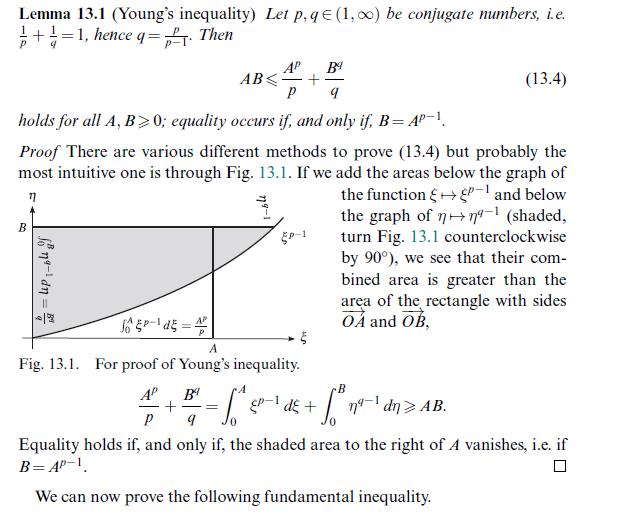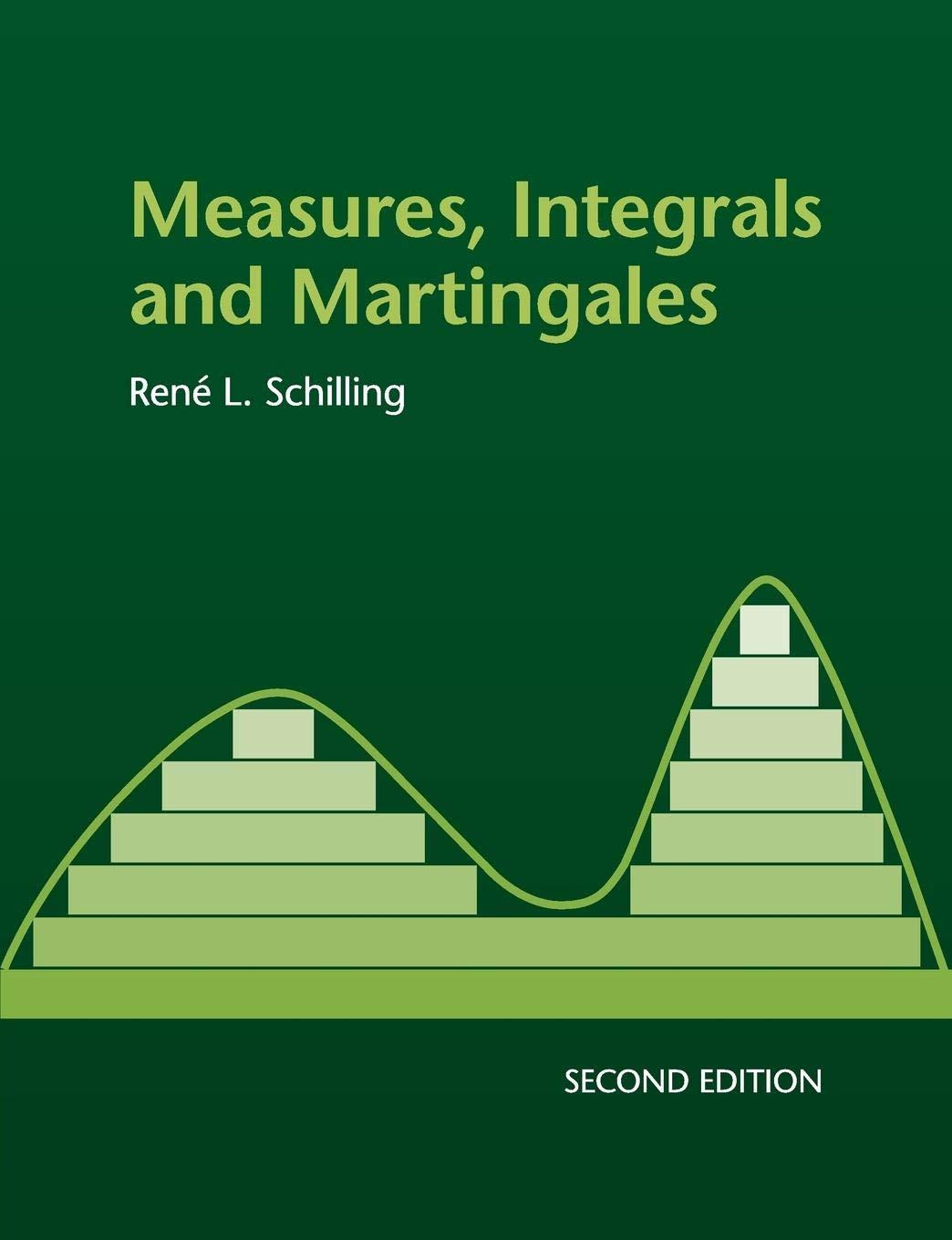Let ((X, mathscr{A}, mu)) be a measure space and let (mathscr{G} subset mathscr{A}) be a sub- (sigma)-algebra
Question:
Let \((X, \mathscr{A}, \mu)\) be a measure space and let \(\mathscr{G} \subset \mathscr{A}\) be a sub- \(\sigma\)-algebra such that \(\left.\muight|_{\mathscr{G}}\) is \(\sigma\)-finite. Let \(p, q \in(1, \infty)\) be conjugate numbers, i.e. \(1 / p+1 / q=1\), and let \(u, w \in\) \(\bigcap_{p \in[1, \infty]} L^{p}(\mathscr{A}, \mu)\). Show that
\[\left|\mathbb{E}^{\mathscr{G}}(u w)ight| \leqslant\left[\mathbb{E}^{\mathscr{G}}\left(|u|^{p}ight)ight]^{1 / p}\left[\mathbb{E}^{\mathscr{G}}\left(|w|^{q}ight)ight]^{1 / q} .\]
[ use Lemma 13.1 with \(A=|u| /\left[\mathbb{E}^{\mathscr{G}}\left(|u|^{p}ight)ight]^{1 / p}\) and \(B=|w| /\left[\mathbb{E}^{\mathscr{C}}\left(|w|^{q}ight)ight]^{1 / q}\) whenever the numerator is not 0 .]
Data from lemma 13.1

Step by Step Answer:






